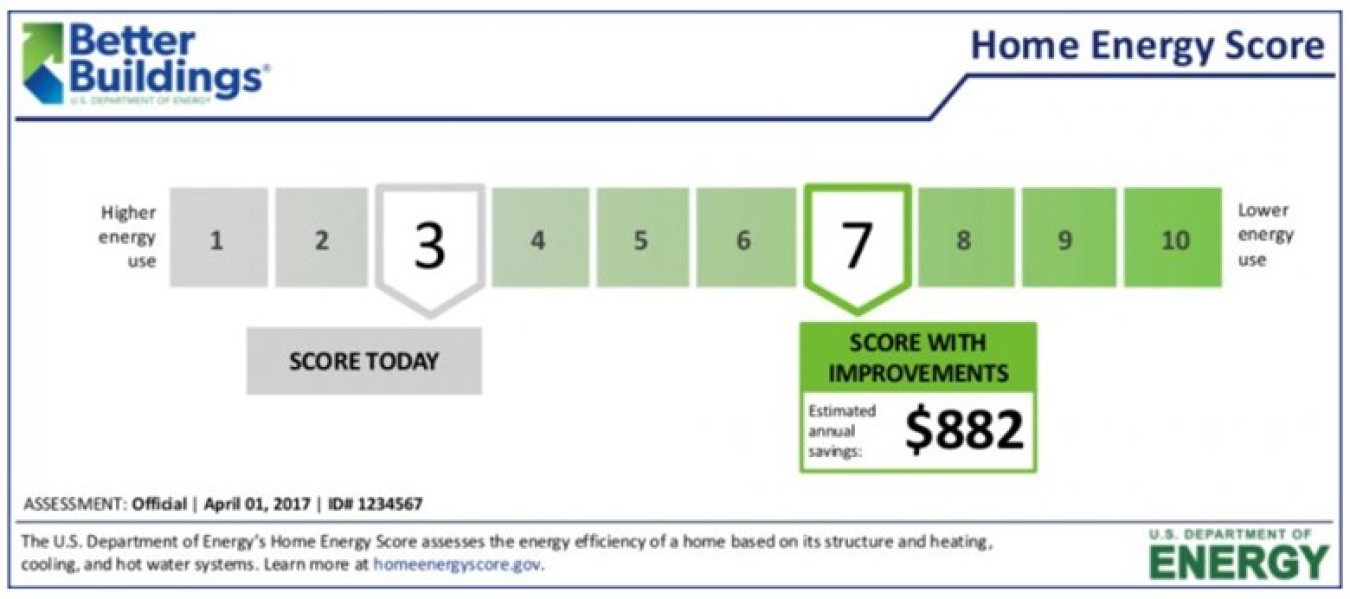First-ever Berkeley Lab study finds relationship between Home Energy Score, sale price, and mortgage repayment in cities with Home Energy Score listing policies.
November 1, 2022First-ever Berkeley Lab Study Finds Relationship between Home Energy Score, Sale Price, and Mortgage Repayment in Cities with Home Energy Score Listing Policies
Can homeowners increase the value of their homes by improving energy efficiency, and do owners of efficient homes repay their mortgages more reliably? A new study from the Department of Energy’s (DOE’s) Lawrence Berkeley National Laboratory (Berkeley Lab) found statistically significant relationships that suggest those answers may be yes, echoing results others have found who study relationships between real estate transactions and energy efficiency.
To investigate the relationship between a home’s energy efficiency, home valuation and mortgage repayments, researchers at Berkeley Lab studied over 25,000 homes that have received a Home Energy Score assessment. (A Home Energy Score assessment is like a miles-per-gallon rating, with higher scores indicating higher efficiency.) In places where homeowners were required to secure Home Energy Score™ assessments before selling their homes, researchers found that final home prices were 0.5% higher for every 1-point increase on DOE’s 10-point Home Energy Score scale. Similarly, they found that final home sale prices were 0.4% higher for every $100 decrease of the Home Energy Score’s estimated utility bills. Finally, lower estimated energy bills were also associated with lower odds of 30-day mortgage delinquency.
This study illustrates why Home Energy Score is a valuable tool for homeowners and anyone looking to buy, sell, or rent a home. Empowering residents with information about home energy use and costs can help them make informed rental and purchase decisions. Home Energy Score also allows home sellers to better reflect the market value for their energy-efficient homes while also guiding homeowners through steps to lower energy bills and improve home energy performance.

Developed by DOE and its national laboratories, the Home Energy Score is created through a standard assessment and provides each home with a score ranging from 1 to 10, where a score of 10 indicates the home is modeled to use less energy than 90% of U.S. homes after normalizing for local weather and resident behavior. Homes with higher scores can be expected to use less energy and have lower energy bills than lower-scoring ones.
Several jurisdictions across the country use Home Energy Scores in local policies and programs to increase the transparency of how homes use energy to help homebuyers and renters make informed investment decisions. Along with the Score, the accompanying report also identifies cost-effective ways to improve the efficiency and comfort of a home and increase its Home Energy Score.
In 2018, Portland, Oregon, adopted a Home Energy Score listing policy and nearby towns Milwaukie and Hillsboro have launched similar programs. The city of Berkeley, California, has also had a Home Energy Score policy since 2016. Many other cities and states have also explored ways to include Home Energy Score in programs run by utilities and nonprofit organizations.
Researchers observed statistically significant relationships between Home Energy Score and both home value and mortgage performance in locations with scoring and disclosure policies, but not in other locations. This finding suggests that buyers in other locations may not know to look for the Scores, or that sellers may not provide the information in the first place. State and local governments like Berkeley and Portland who embed Home Energy Scores into their jurisdictions’ real estate transactions can directly empower their current and future residents to maximize the value of their homes, find ways to improve their home’s performance, and support greater energy efficiency deployment across the housing stock.
In the coming months, Berkeley Lab plans to expand this study to include more than two million homes rated with the Home Energy Rating System index–an industry standard measure of a home’s energy efficiency–along with tens of thousands of homes that have received one of several green certifications, including National Green Building Standard Certification, Florida Green Building Coalition’s Green Home Certification, and Leadership in Energy and Environmental Design.

